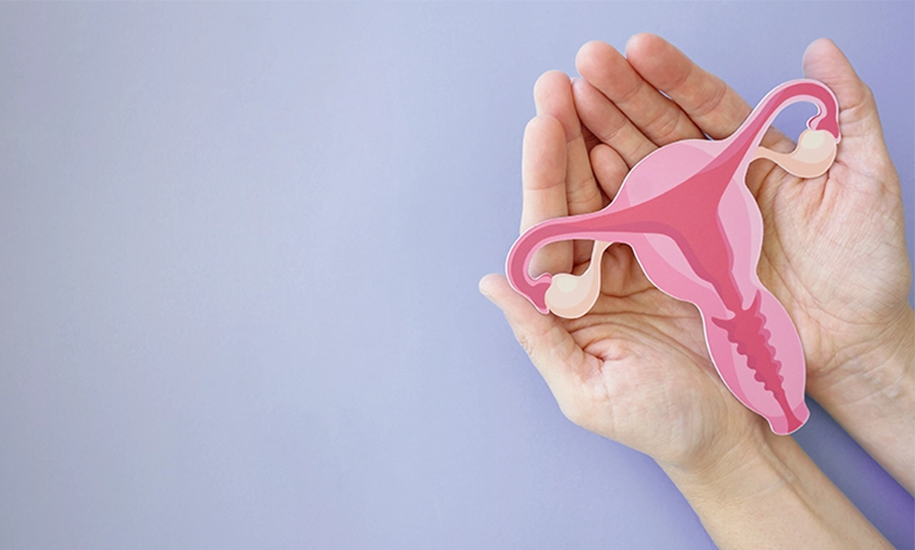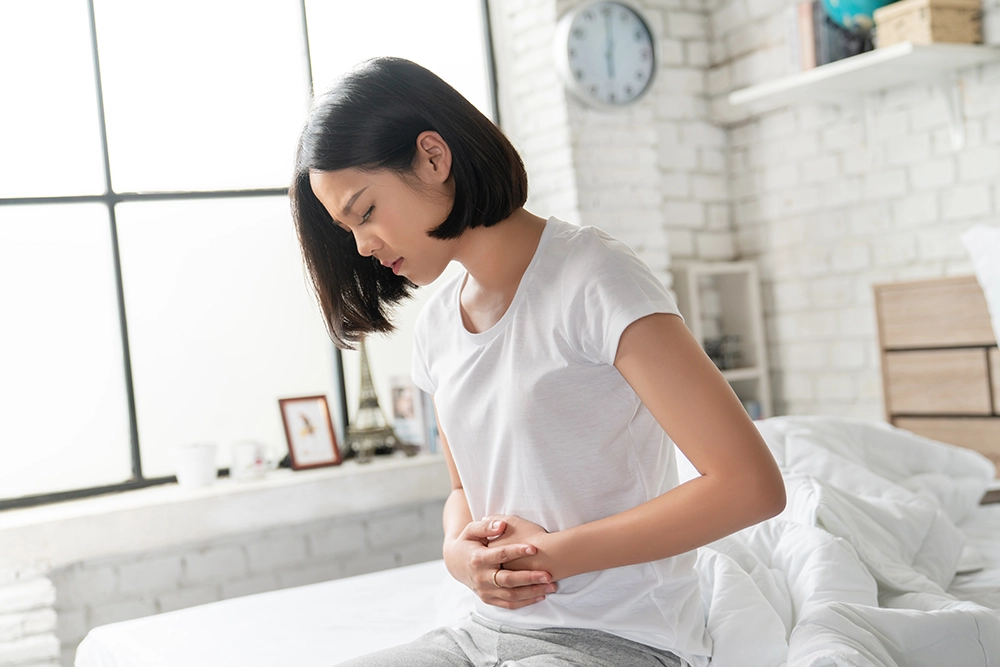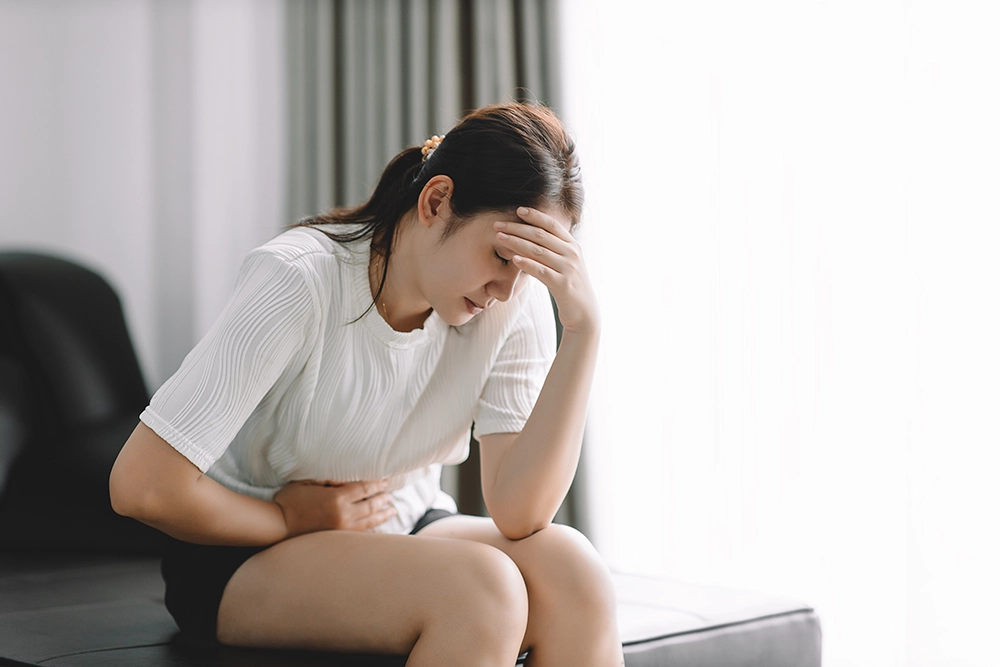Living with Polycystic Ovarian Syndrome (PCOS) can be a complex and often challenging experience for many women. PCOS not only brings physical symptoms like irregular periods and weight gain, but it also can impact a woman's chances of starting a family.
Learn what PCOS is, its symptoms, causes, and the treatment options women can consider to improve their chances of conception.

PCOS Specialist in Singapore at Pacific Women's Clinic
Living with Polycystic Ovarian Syndrome (PCOS) can be a complex and often challenging experience for many women. PCOS not only brings physical symptoms like irregular periods and weight gain, but it also can impact a woman's chances of starting a family.
Learn what PCOS is, its symptoms, causes, and the treatment options women can consider to improve their chances of conception.
PCOS is a condition in women that is characterised by an imbalance in reproductive hormones, affecting how their ovaries work. In PCOS, the ovaries may develop multiple small, fluid-filled follicles that fail to release eggs regularly, leading to issues with menstruation and ovulation. Irregular or absent ovulation makes it challenging for women with PCOS to conceive, as ovulation is essential for fertilisation to occur.
Furthermore, hormonal imbalances associated with PCOS can further interfere with the menstrual cycle, reducing the chances of pregnancy. Without regular ovulation, the likelihood of conception decreases, leading many women with PCOS to seek medical treatments to help regulate their cycles and improve fertility.

PCOS often leads to missed or infrequent periods due to irregular ovulation.
Hirsutism, or excess hair on the face, chest, and back, is common due to high androgen levels.
Androgens can trigger more severe acne, especially along the jawline and back.
Many women with PCOS may experience weight gain and difficulty losing.
Thinning hair on the scalp is also linked to androgen levels.
Since PCOS affects ovulation, it can make it harder for women to become pregnant naturally.
Anxiety and depression are common among women with PCOS, often due to hormonal imbalances and the effects on appearance.
Blood tests are done to rule out other medical conditions that can present similar symptoms, such as thyroid disorders or elevated prolactin levels.

PCOS treatment focuses on managing symptoms and can be tailored based on individual goals, such as improving fertility, managing acne or hirsutism, or regulating menstrual cycles.
Surgery is not a primary treatment for PCOS but may be considered in cases where other treatments have not been effective.
Managing PCOS is a lifelong journey that involves more than just medical treatments. At Pacific Healthcare Specialist Centre, our experienced PCOS specialist in Singapore provides holistic care to support your physical, emotional, and reproductive health.
PCOS is a leading cause of infertility in women, but with the right care, many women in Singapore successfully conceive. Our PCOS specialist will work closely with you to monitor ovulation, manage hormonal imbalances, and recommend treatments tailored to your fertility goals.
Weight management and insulin resistance are key factors in controlling PCOS symptoms. Many women with PCOS in Singapore benefit from tailored nutrition plans, regular exercise, and, when necessary, medication to improve insulin sensitivity. Our specialist will guide you in adopting sustainable lifestyle changes that help regulate your hormones, reduce symptoms, and improve fertility outcomes.
At our clinic, we recognise the importance of your emotional well-being in managing PCOS. That’s why we regularly check in on our patients and are happy to see how we can accommodate your mental health needs during treatment.
Polycystic ovarian syndrome is a complex condition that can affect women in many ways. While there is no cure, strategies to manage it effectively can reduce symptoms and improve quality of life.
Pacific Healthcare Specialist Centre treats PCOS and other gynaecological conditions such as menstrual disorders, polyps and adenomyosis. Our clinic provides a range of individualised plans to address symptoms, improve hormonal balance, and support reproductive health. With a patient-centred approach, we ensure comprehensive care tailored to individual needs for women dealing with PCOS in Singapore.

Polycystic Ovary Syndrome (PCOS) can be managed with a combination of lifestyle changes, medication, and regular medical monitoring. Eating a balanced diet, maintaining a healthy weight, and exercising regularly can help regulate your cycle and hormone levels.
Your doctor may also prescribe medications to manage symptoms like menstrual irregularities, acne, hirsutism (excess hair growth), and fertility challenges. It’s important to work with a healthcare provider to create a personalised management plan for PCOS or other chronic conditions.
Yes, weight gain is a common symptom of PCOS due to hormonal imbalances and insulin resistance. Many women with PCOS find it more challenging to manage their weight, especially around the abdominal area.
However, healthy lifestyle habits like regular exercise and a low-glycaemic diet can significantly help in weight control. Medical treatment and support from a doctor or dietitian can also make it easier to manage your symptoms and improve overall health.
If left untreated, PCOS may increase the risk of long-term health issues such as infertility, type 2 diabetes, high blood pressure, high cholesterol, sleep apnoea, and an increased risk of endometrial cancer.
Untreated hormonal imbalances can also lead to worsening symptoms like irregular periods, acne, and weight gain. Early diagnosis and proactive management can reduce these risks and improve quality of life.
Copyright © 2026 Pacific Healthcare Specialist Centre (Women's Clinic)